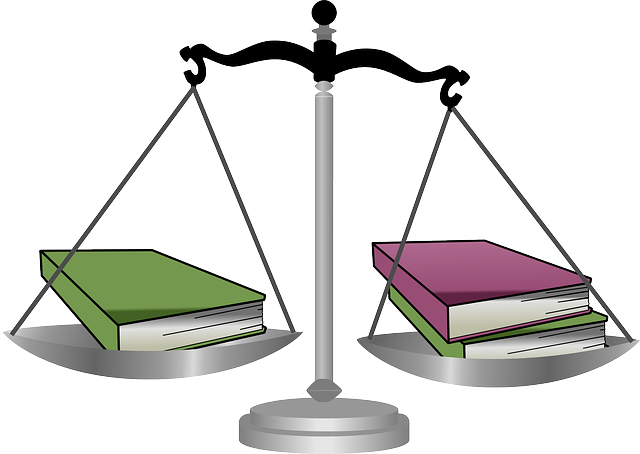
Category: Arvada Colorado Elder Law Attorney
Arvada Colorado Elder Law Attorney: Navigating the Complexities of Aging and Legal Protection
Introduction
In the vibrant city of Arvada, Colorado, an often-overlooked yet critical legal practice has been gaining prominence—Elder Law. As society’s aging population continues to grow, the need for specialized legal services catering to the unique challenges faced by seniors becomes increasingly vital. This article delves into the world of Arvada Colorado Elder Law Attorneys, exploring their role, significance, and the profound impact they have on the lives of the elderly. By understanding this niche practice area, we can appreciate its importance in ensuring fairness, security, and quality of life for our aging citizens.
Understanding Arvada Colorado Elder Law Attorney
Definition and Core Components
An Arvada Colorado Elder Law Attorney is a legal professional specializing in the complex web of laws, regulations, and ethical considerations that uniquely affect older adults. This specialization encompasses a wide range of legal services tailored to meet the specific needs of seniors, including:
-
Estate Planning: Assisting clients in crafting wills, trusts, and power-of-attorney documents to ensure their wishes are respected and their assets are distributed according to their preferences.
-
Guardianship and Conservatorship: Helping establish legal guardianships for those unable to make decisions for themselves, ensuring their well-being and financial security.
-
Long-Term Care Planning: Guiding seniors and their families through options for assisted living, nursing homes, and home care, including the exploration of public benefits like Medicaid.
-
Medicaid and Elderly Benefits: Navigating the complex application processes and eligibility requirements for various government-sponsored programs designed to support seniors’ healthcare and financial needs.
-
Elder Abuse Prevention: Educating clients about potential threats, such as financial exploitation, and assisting in safeguarding their assets and personal information.
Historical Context and Significance
The field of Elder Law has evolved over the years in response to societal changes and an increasing awareness of the unique vulnerabilities faced by older adults. In the past, legal services for seniors were often incorporated within traditional estate planning practices. However, as the aging population grew and societal attitudes shifted, the need for specialized knowledge and advocacy became increasingly apparent.
In Colorado, the recognition of Elder Law as a distinct practice area gained momentum in the late 20th century, driven by concerns about elder abuse, changing family dynamics, and the complex medical and financial issues that often accompany aging. The establishment of dedicated Elder Law programs within law schools and the rise of specialized bars and associations have further solidified this field’s importance.
Fitting into the Broader Landscape
Arvada Colorado Elder Law Attorneys play a pivotal role in the local legal community, serving as trusted guides for seniors and their families navigating complex legal territories. Their work often involves collaboration with other professionals, including financial advisors, social workers, and healthcare providers, to ensure comprehensive care.
Global Impact and Trends
International Influence
The concept of Elder Law has spread globally, reflecting a growing recognition of the unique challenges faced by aging populations worldwide. While specific legal frameworks vary across countries, many nations have adopted principles and practices that mirror those in the United States, especially regarding estate planning, guardianship, and elderly benefits.
Key Trends Shaping Elder Law
-
Aging Population: The global aging population is a primary driver of Elder Law’s growth. According to the World Health Organization, the number of people aged 60 and over is projected to reach 2.1 billion by 2050. This demographic shift increases demand for specialized legal services.
-
Estate Planning Awareness: Growing awareness of the importance of proper estate planning among older adults and their families has led to increased demand for Elder Law services, as people seek to protect their assets and ensure their wishes are respected.
-
Technological Advancements: The digital age has brought both opportunities and challenges for Elder Law practitioners. Online resources and remote legal services expand accessibility, while cybersecurity concerns and the need to navigate complex digital estate planning issues present new complexities.
-
Cultural and Societal Shifts: Changing cultural attitudes towards aging and increased advocacy for senior rights have influenced Elder Law practices, encouraging more proactive approaches to addressing age-related issues.
Regional Differences
Elder Law practices vary across regions due to differences in healthcare systems, social safety nets, and cultural norms:
| Region | Key Differentiators |
|---|---|
| North America | Advanced elderly benefits programs, such as Medicaid, heavily influence legal strategies. |
| Europe | Strong social security systems and varying levels of state-provided long-term care impact legal needs. |
| Asia | Cultural attitudes towards aging and family dynamics play a significant role in legal approaches. |
| Latin America | Diverse economic conditions and varying degrees of access to healthcare services shape Elder Law practices. |
Economic Considerations
Market Dynamics
The Elder Law market is dynamic, influenced by factors such as population demographics, economic conditions, and government initiatives:
-
Demographics: An aging population drives demand for services, creating a steady stream of clients for qualified attorneys.
-
Economic Conditions: Financial crises or recessions can impact elderly individuals’ assets, increasing the need for estate planning and financial management assistance.
-
Government Programs: Changes in public benefits programs, such as Medicaid, require legal professionals to stay updated on eligibility criteria and application processes.
Elderly Benefits and Public Assistance
Elder Law attorneys often assist clients in navigating complex government benefits programs, including:
-
Medicaid: A vital program providing healthcare coverage for low-income seniors, with specific eligibility requirements and asset transfer rules that lawyers help clients understand.
-
Supplemental Security Income (SSI): SSI offers financial assistance to disabled or blind individuals, including many older adults, and legal aid is crucial in ensuring proper application and eligibility.
-
Veterans Benefits: Specialized legal services are needed to help veterans and their families access benefits like pension, healthcare, and disability compensation.
Long-Term Care Planning
Options for Seniors
Arvada Colorado Elder Law Attorneys assist clients in exploring various long-term care options:
-
Assisted Living Facilities: These offer a combination of independent living and personalized assistance with daily activities. Legal professionals help with admission agreements, billing issues, and ensuring resident rights are respected.
-
Nursing Homes: For those requiring more extensive medical care, nursing homes provide 24/7 staffing. Attorneys navigate placement processes, care agreements, and potential legal disputes.
-
Home Care Services: Elder law specialists guide clients in arranging in-home care, ensuring proper documentation and understanding of available public benefits to support this option.
Public Benefits and Medicaid Planning
Medicaid is a significant safety net for many seniors, but eligibility requirements can be complex. Attorneys assist clients in:
-
Asset Protection: Strategies to protect assets below the Medicaid threshold while preserving access to them for non-qualified needs.
-
Application Process: Helping clients gather necessary documents and understand the application process to ensure timely approval.
-
Community Resources: Identifying local programs and services that can supplement public benefits, enhancing seniors’ quality of life.
Elder Abuse Prevention
Financial Exploitation
One of the most prevalent forms of elder abuse is financial exploitation, where individuals take advantage of seniors’ vulnerabilities to gain control over their assets or money. Arvada Colorado Elder Law Attorneys:
-
Educate Clients: Raise awareness about potential threats and red flags, empowering seniors to make informed decisions.
-
Safeguard Assets: Assist clients in setting up protective measures, such as power-of-attorney documents, trusts, and asset protection strategies, to prevent financial exploitation.
-
Report Abuse: Provide guidance on reporting suspected abuse to the appropriate authorities, ensuring senior safety and accountability for perpetrators.
Other Forms of Elder Abuse
Attorneys also address other types of elder abuse, including:
-
Neglect: Ensuring clients receive proper care and attention from caregivers or family members.
-
Physical and Emotional Abuse: Guiding seniors in legal actions against abusers and seeking protective orders if necessary.
-
Discrimination: Fighting for senior rights and challenging ageist practices in various settings.
Technological Advancements
Digital Estate Planning
The digital age has brought both opportunities and challenges for Elder Law practitioners:
-
Online Resources: Websites, apps, and online legal services provide valuable resources for seniors and their families, offering basic estate planning information and tools.
-
Cybersecurity Concerns: As more financial and medical records go digital, attorneys must advise clients on protecting sensitive data and navigating potential cybersecurity risks.
-
Digital Estate Execution: The use of technology to execute wills and trusts, including electronic signatures and online notarial services, requires legal professionals to stay updated on admissibility rules and best practices.
Telemedicine and Remote Legal Services
The COVID-19 pandemic accelerated the adoption of telemedicine and remote legal services:
-
Virtual Consultations: Elder Law attorneys now offer initial consultations via video conferencing, making legal advice more accessible, especially for clients with mobility issues or those living in remote areas.
-
Document Preparation and Review: Many routine document preparation and review tasks can be conducted remotely, streamlining the process while ensuring client confidentiality.
Challenges and Future Considerations
Complexities of Aging Populations
As the aging population becomes increasingly diverse, attorneys face challenges related to:
-
Cultural Competence: Understanding and respecting cultural differences in family dynamics, decision-making preferences, and end-of-life wishes.
-
Diverse Needs: Addressing the unique legal needs of seniors from various ethnic, cultural, and socioeconomic backgrounds.
-
Accessibility: Ensuring that legal services are accessible to all seniors, including those with disabilities or limited mobility.
Legal Updates and Advocacy
Elder Law attorneys must stay current with legal developments and advocate for senior rights:
-
Government Initiatives: Keeping abreast of changes in government policies and programs affecting elderly individuals and advocating for their interests.
-
Legislative Changes: Monitoring and providing input on proposed legislation that could impact seniors’ rights, benefits, and protections.
-
Case Law: Following relevant court cases that shape legal precedents related to elder law issues.
Conclusion
Arvada Colorado Elder Law attorneys play a vital role in ensuring the well-being and security of elderly individuals. By providing specialized legal services tailored to the unique needs of seniors, they help them navigate complex challenges, protect their rights, and make informed decisions as they age. As the field continues to evolve, these professionals must adapt, stay informed, and advocate for a just and compassionate society for all its elders.









